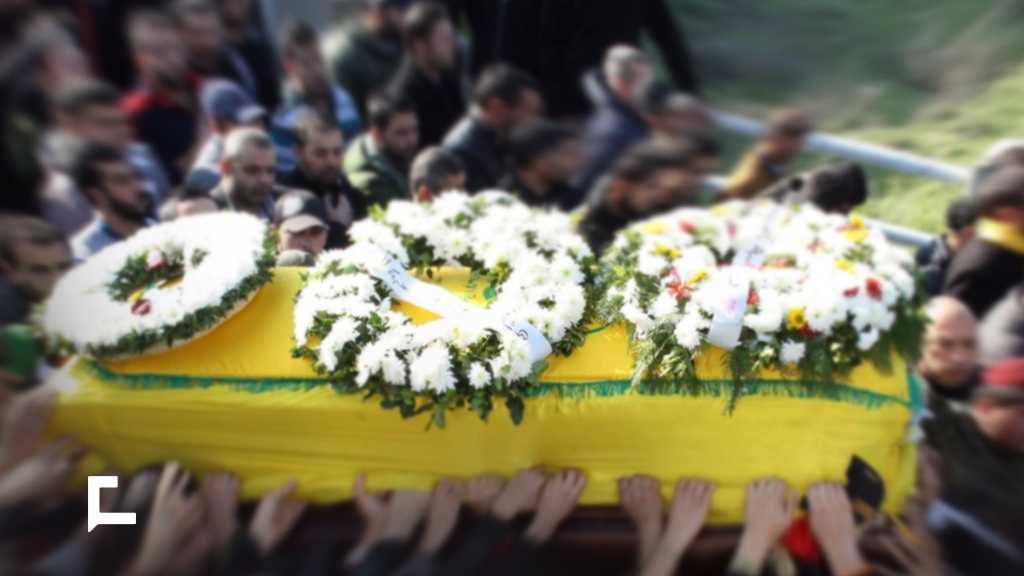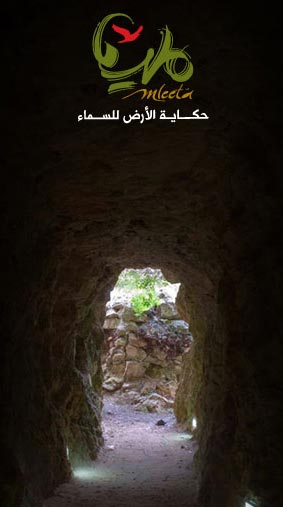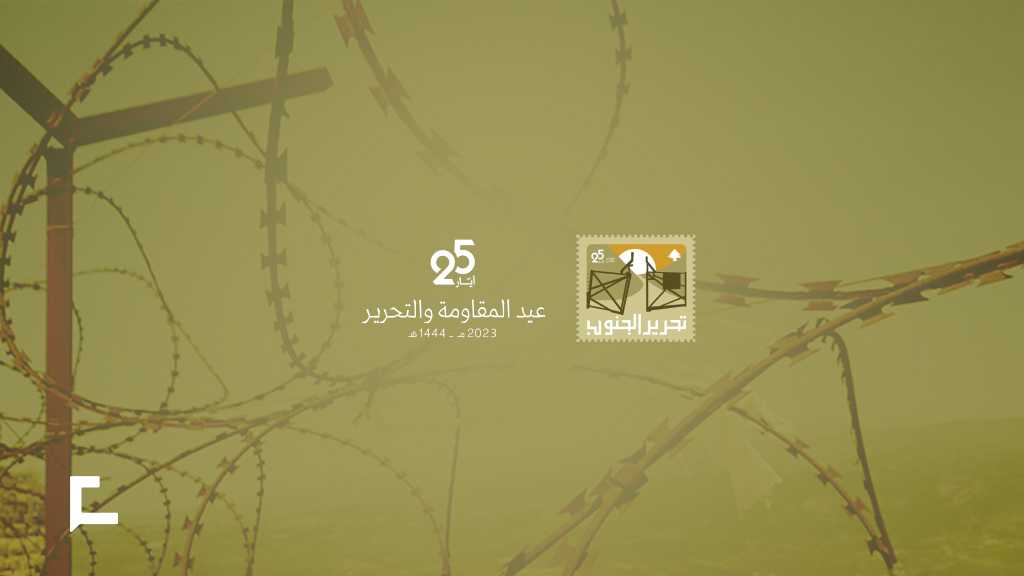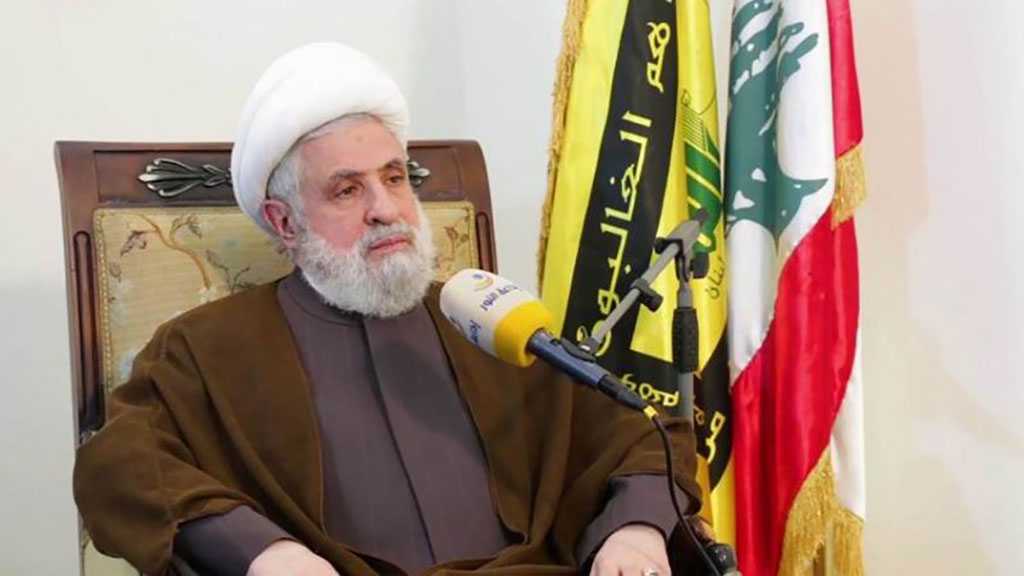
Mleeta tells the story of resistance, lest "Israel" forgets, Nasrallah: Mleeta to Preserve History of Resistance

Local Editor
The Islamic Resistance in Lebanon has chosen to launch a "Resistance Tourism" site in South Lebanon to mark the 10th anniversary of the victory of the resistance in Lebanon over the "Israeli" enemy.
Mleeta, a village in the heart of South Lebanon, was a launching point for many resistance operations during the enemy's occupation of Lebanon since 1982.
The celebration brought together many faces from Lebanon's political, religious, military, social, and resistance figures.
The official inauguration started with the recitation of verses of the Holy Quraan, followed by a documentary video about the resistance.
Sheikh Ali Daher, the official for Central Activities in Hizbullah, greeted the attendees and detailed the story of Mleeta, the village and the exhibition. Sheikh Daher promised that the second and third phases of the Mleeta resistance tourism site would be completed in two years.
His Eminence, the Secretary General of Hizbullah, Sayyed Hassan Nasrallah addressed the attendees via a video link.
Nasrallah greeted the attendees, citing that the site would be a historic site by which the resistance revives its history and values.
Nasrallah lauded the massive effort put together to complete the site, citing the reason behind the designation of the inauguration on May 21st to symbolize the first day of the May 2000 withdrawal which began on May 21st ten years earlier.
Nasrallah emphasized on the importance and influence history of any nation in shaping its present and future, citing museums as an example of preserving history. Nasrallah called for the documentation of the history of the resistance in Lebanon, asking for a group effort in that sense, to write the resistance history in true dimensions and true facts, including all resistances and peoples and parties and so on, and leaving out any exaggeration or falsifications.
The Secretary General then explained the reasons for selecting Mleeta as a location for the museum, and the history of Mleeta, from the first cavern to the present day historic site.
Nasrallah then went on to talk about the municipal elections in South Lebanon which is scheduled for Sunday May 23rd.
His eminence noted the differences and disputes over the municipal elections, explaining that Hizbullah's and Amal movement live a dilemma over the issue, saying that whichever may the issue is turned, there would be some problems in the issue.
Nasrallah called on all Lebanese and the Southerners on particular, saying that the best present Hizbullah and Amal movement could present to the people on the 10th anniversary of the resistance and Liberation is to agree on the elections, but assured that there would be some who disagree with the agreed-on lists, saying that those who oppose are not against the resistance or Hizbullah.
His Eminence asked that the lists go to the ballots in complete form, and asked for more municipalities to be won uncontested, giving assurance that Hizbullah is bound to its promise and commitment in the agreements.
He considered the elections would not be a referendum.
Nasrallah considered that the Turning Point 4 maneuvers pose no threat to Lebanon, calling on Lebanese on the frontline villages to vote freely and rejoice.
Nasrallah ended his word by asking why Lebanon has turned into a pilgrimage site for foreign officials and delegations, asking what purpose lies behind these visits.
Translated by Hizbullah Official Website
In the Name of Allah, the Beneficent, the Merciful
Praise be to Allah, Lord of all Worlds.
May peace and Mercy be upon the noblest of creations and messengers, our master and prophet and beloved Abu Kassem Mohammad son of Abdullah and on his kind pure household and his chaste good companions, and on all prophets and messengers.
Ladies and gentlemen, brothers and sisters, the gathered crowd, may God's peace, mercy, and blessing be upon you.
To begin, I welcome you all, and it is my honor to be with you to jointly inaugurate this jihadi tourist site which we hope is a proper blessed establishing step a long road by which we preserve the history of our valiant resistance and revive its culture, sacrifices, and victories. We have chosen this celebration and this inauguration today, the 21st of May, for its meaning, symbolism, and resemblance. Despite the fact that what has been accomplished up to now at this jihadi tourist site called Mleeta, after the [name of] the land on which it is located, only the first phase has been completed with the ongoing effort, day and night, of the brothers whom I also thank.
We chose the 21st only to remind that on a day like this at 10am the villagers of Qatra, which was occupied, and ghanduriyeh along with others were gathered in the Huseiniyah hall of Ghanuriyeh to mourn a deceased lady from one of the families.
During that day which came after weeks of continuous effort which targeted the enemy's posts and, particularly, the enemy's agent army, the persistent continuous almost-daily destructive operations [of the resistance] had induced the occupying enemy to withdraw from a few frontline posts, including Qantra.
On the 21st of May 2000, the first decisive step on the road to liberation was taken by the people who, in truth, are the leaders of the resistance, that were gathered in the Husainiyah Hall of Ghanduriyeh. They made an unprompted decision to storm through the crossing and break down the iron gate and uproot all barricades and return to their village, Qantara. The men and women, defenseless and weaponless, entered, and so was the first breakthrough, after which all posts and fences collapsed. On May 22nd and 23rd and 24th the battle was concluded, and on the 25th of May we celebrated, together, the capital of resistance and liberation, Bint Jubeil.
We chose this day due to the strong deep connection in terms of time and place and occasion.
Allow me in this speech to say a general word in relation to the resistance and its history and responsibilities, and a word on Mleeta, the site of which we inaugurate today, and a final word I am obliged to say due to the media atmosphere which surrounds us now on the municipal elections in the south and the "Israeli" enemy's maneuvers, Turning Point 4.
In the first Point it is established, clear, and obvious that the history of any people, nation, clan, group, region, government, or country is a principal element of its identity, representing its past in all its aspects, yet pertaining massive influence over the compass of its movements in the present, and outcome of its state in the future.
Live nations and peoples preserve their history, taking inspiration from in, recollecting it, are proud of it, use it to embolden itself at times, and to reveal its oppression at others, employing for the preservation and revival of that history all means and available capacities adequate with the development of every era.
Historically, in the past and present, and now, for the preservation of any nation or people or clan or group, if they want, of its history, it uses and employs various and numerous means.
For example, in the documentation and writing down of history, there is the writing of biographies, autobiographies, stories of giants, stories of families, stories of powers, stories or regions, retaining the literary history representing a specific historic era, historic studies, historic researches, preserving, protecting, and maintaining historic sites... because the nation that destroys its historic sites is one that denounces and is ashamed of its history, and knows not the value nor the influence of history, as some ignorant people do in some parts of the world... the dedication of symbols, names, and events in the public conscience over generations... commemorating historic events annually or periodically in many ways: celebrations, courses, conferences, seminars..and so on...documentaries, films, series, documentation, documentation institutions, conventions, exhibitions for paintings, art, poetry, literature, popular poetry...what God allows of means...and with the advancement of the age, there are more means available and more capable of expressing and more beautiful.
Among the measured used in the past and present is the establishment of all types of museums: personality museums, event museums, art museums representing history...and among the most important of these museums are those which focus on a specific historic event, a specific historic era...something which is found in many places.
A while ago, I was watching some TV documentaries, and in one they were displaying the museum of the Conquest of Constantine, for instance.
Typically, countries that wage wars and win establish large museums including panoramic scenes of the movements of its armies and its stages, victories, and accomplishments.
Apart from what is displayed in these museums, be it true or not, exaggerated or not, yet this remains the style used today. Even our enemies, the Zionist movement around the globe, and we wish not to enter a dispute over the holocaust, [they] have written books, executed researches, and made films up to now, some of which are displayed on our Arab screens, and they put the subject in any film even if it is not related, be it social or political or entertaining or artistic... they have established museums for the holocaust in many world capitals, so that wherever anyone goes, he can see a holocaust museum, regardless of its authenticity or not or of its precision or not and of its scale...we don't want to enter the subject.
Today, in the inauguration of this site, we try to make a humble step compared to our history and the history of our country and people and the history of the resistance in Lebanon in terms of the volume of sacrifices it has presented and the historic victories which were achieved.
We are trying through this museum, the Mleeta museum, to put forward an effort on the road of preserving history and presenting bright, realistic, and true images of this history.
Based on this introduction, I would like to make advantage of the opportunity of this gathering which is attended by this blessed crowd or political, media, social, artistic, and cultural personalities..to say that among our most grave responsibilities, all brothers and sisters, on a national level at this stage is to preserve the resistance.
If you want to talk about Lebanon's history, then it's a complicated thorny difficult matter. One of the most difficult issues is the documentation of Lebanon's history due to the entanglements in the country, the sectarian, denominational, and regional complications. Regrettably, in Lebanon, every area has its history, and every sect has its history, and every family has its history, and there isn't even a [single] history for a denomination, because the Lebanese denominations, throughout history, had leaderships and conflicts and some parts of history were written from the viewpoint of influential leader.
I don't want to enter this thorny subject, but I do want to say that a resistance began in Lebanon since 1948, and not since 1978 or 1982, from the beginning of the Zionist entity and the Zionist occupation of occupied Palestine and their aggressive presence on the Lebanon-Palestine borders ... there was a long history of aggression and occupation and intimidation, and a long history of resistance, withstanding, and defiance.
At a certain stage it was expressed by the frontline village and areas' inhabitants, and expressed by the Lebanese army, and expressed by officers of the Lebanese army, despite the humble resources they had at hand, and it was expressed by the security forces located in frontline villages.
At a later stage, the resistance took progressive forms with the presence of Palestinian resistance factions and the affiliation of the Lebanese youth with the Palestinian resistance factions, reaching the formation of Lebanese resistance factions in the framework of national and Islamic parties...and in the forefront was the announcement of Sayyed Moussa Sader if the Lebanese Resistance Battalions [Amal]...and history went on, the post-79 resistance, and in 1982 a new resistance was born based on al that heritage and all that history and all those accomplishments and all that presence and all those sacrifices.
And hence, what we call the Islamic Resistance in Lebanon, was, and so was the presence of Hizbullah as a main faction in the resistance movement.
Since 1948 till today, there has been resistance in the battlefield, a military resistance and a popular resistance among those who withstood and held out and remained in their land in the absence of protection, and there's a political resistance and an intellectual resistance, and a media resistance and a social resistance, and there are colossal efforts made in Lebanon in confrontation of the Zionist project and the Zionist influence and the Zionist infiltration into the Lebanese arena and to all corners of this nation, to the government and institutions and parties and sects and denominations and the kind everyday people and to the towns and villages.
This is a resistance history, modern history. We must also mention that after ‘75, ‘76, and ‘82, and even after that, the presence of the Syrian Arab Army on Lebanese soil and its great sacrifices including martyrs and the wounded which they presented.
This is modern history. It has its films and records and documents and witnesses, and much of that generation lives and we can ask them and talk to them and take data from them.
I am mentioning this to say that there lays a huge responsibility. Let's document the history of the resistance in Lebanon in its various dimensions, and we are capable of that, yet it requires group effort. Up till now, what have been accomplished are mere personal or partisan efforts. There are books and researches on the leaders of the resistance, martyrs of the resistance, about resistance factions. Even we, Hizbullah, have not come forth with a comprehensive and extensive study or historic book or documentary. We're talking about Hizbullah's resistance, but that doesn't mean that this is all the resistance. This is part of the resistance and a stage of the resistance preceded by stages and resistance movements that presented huge sacrifices and some of these movements are still present and continue to present huge sacrifices.
Comments
person MHAMMAD SAYED
SHO 7ELAW
SHE KTEER 7ELOW BEJANNEN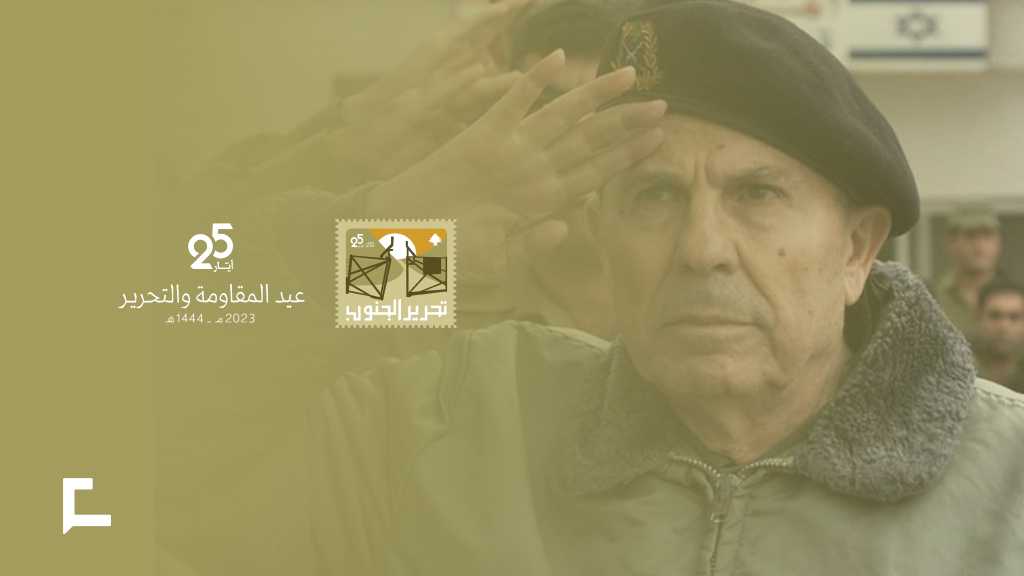
Memoirs of a Disappointed Collaborator
10 months ago